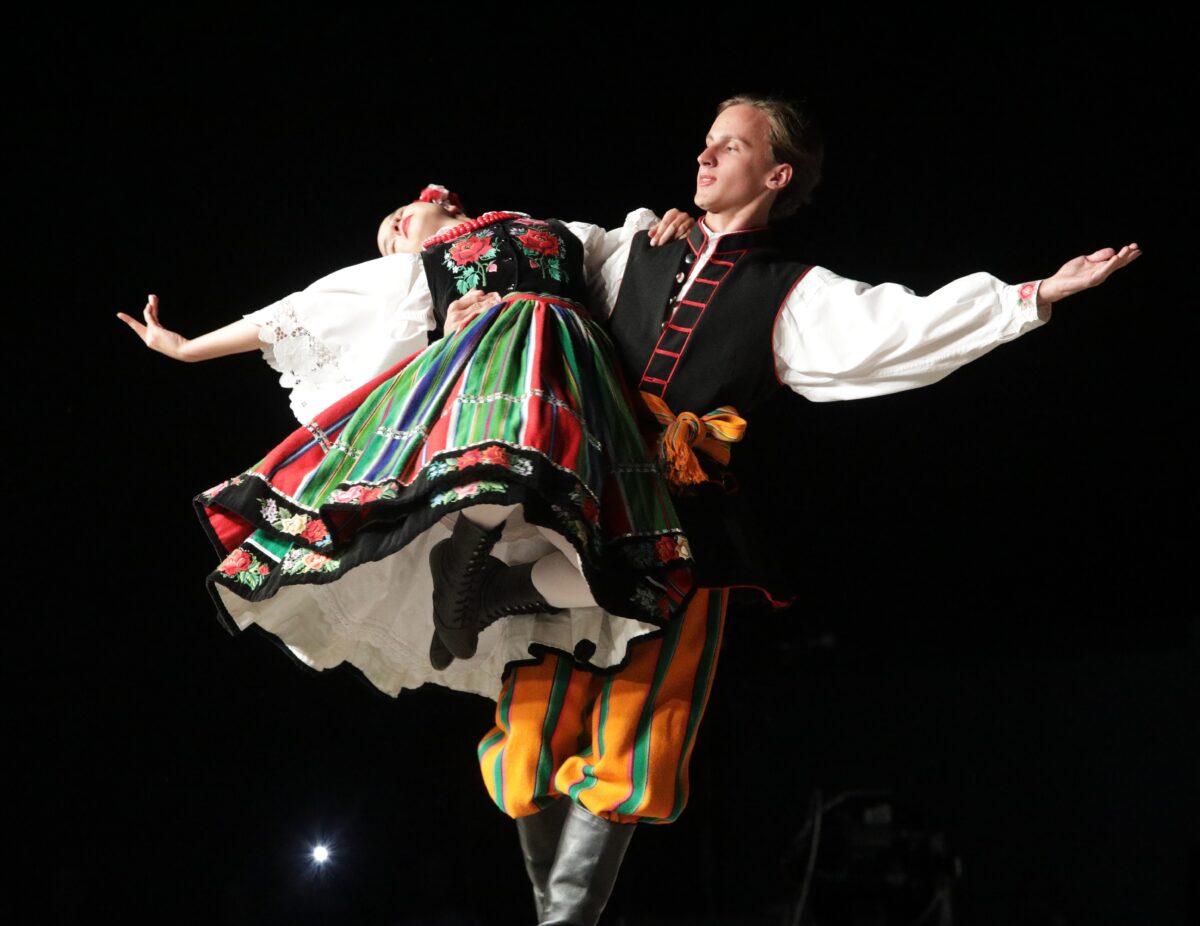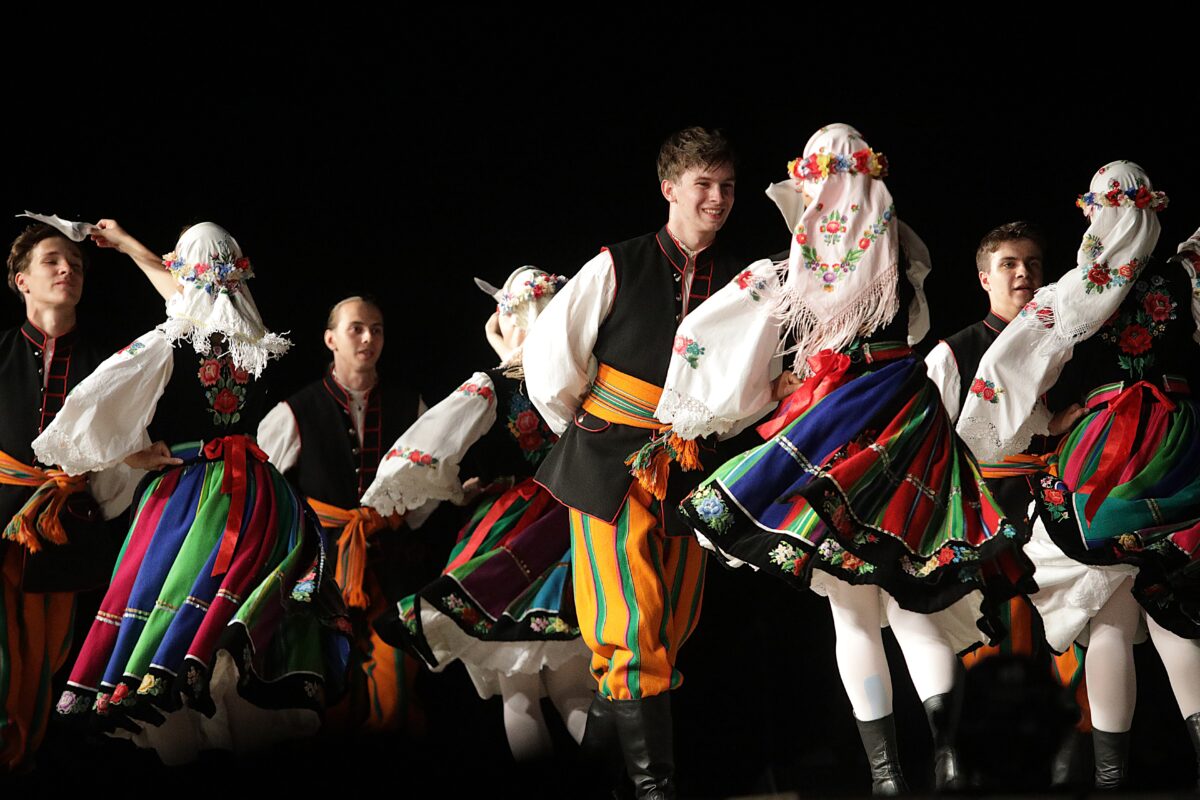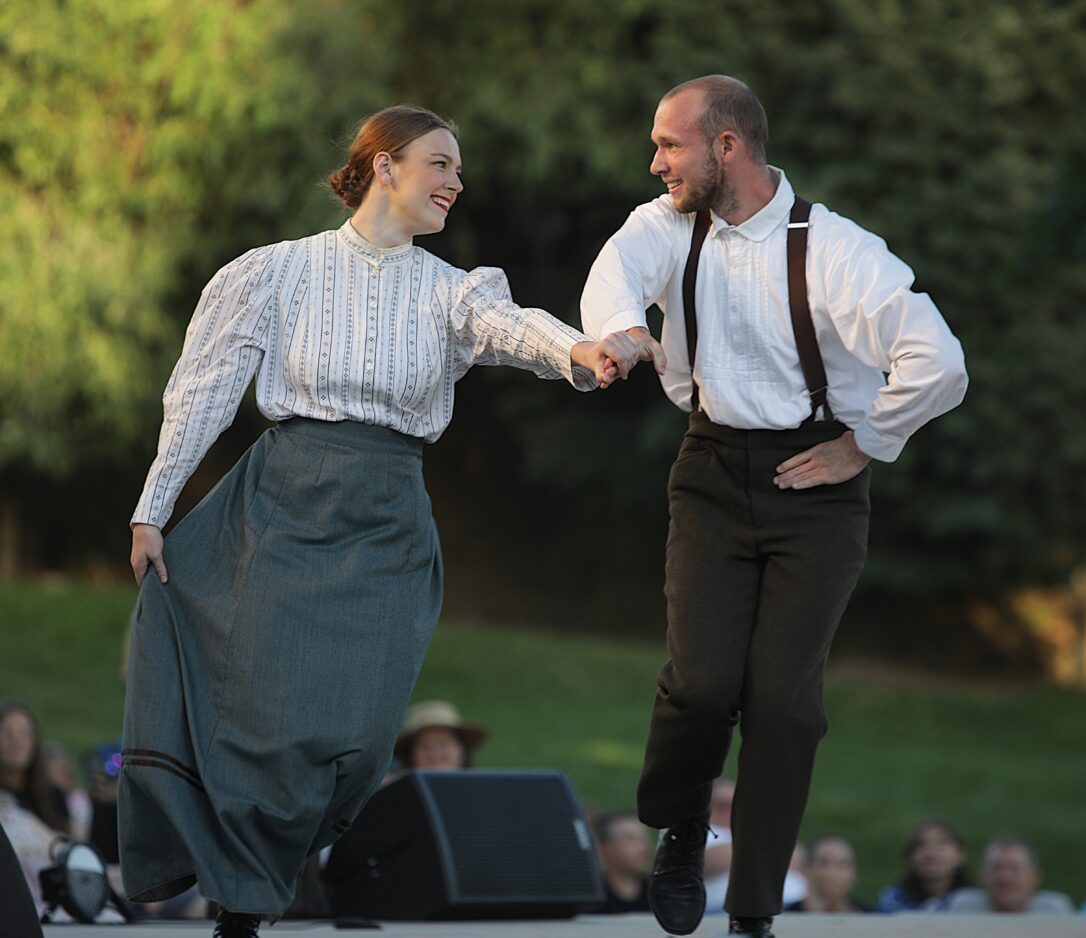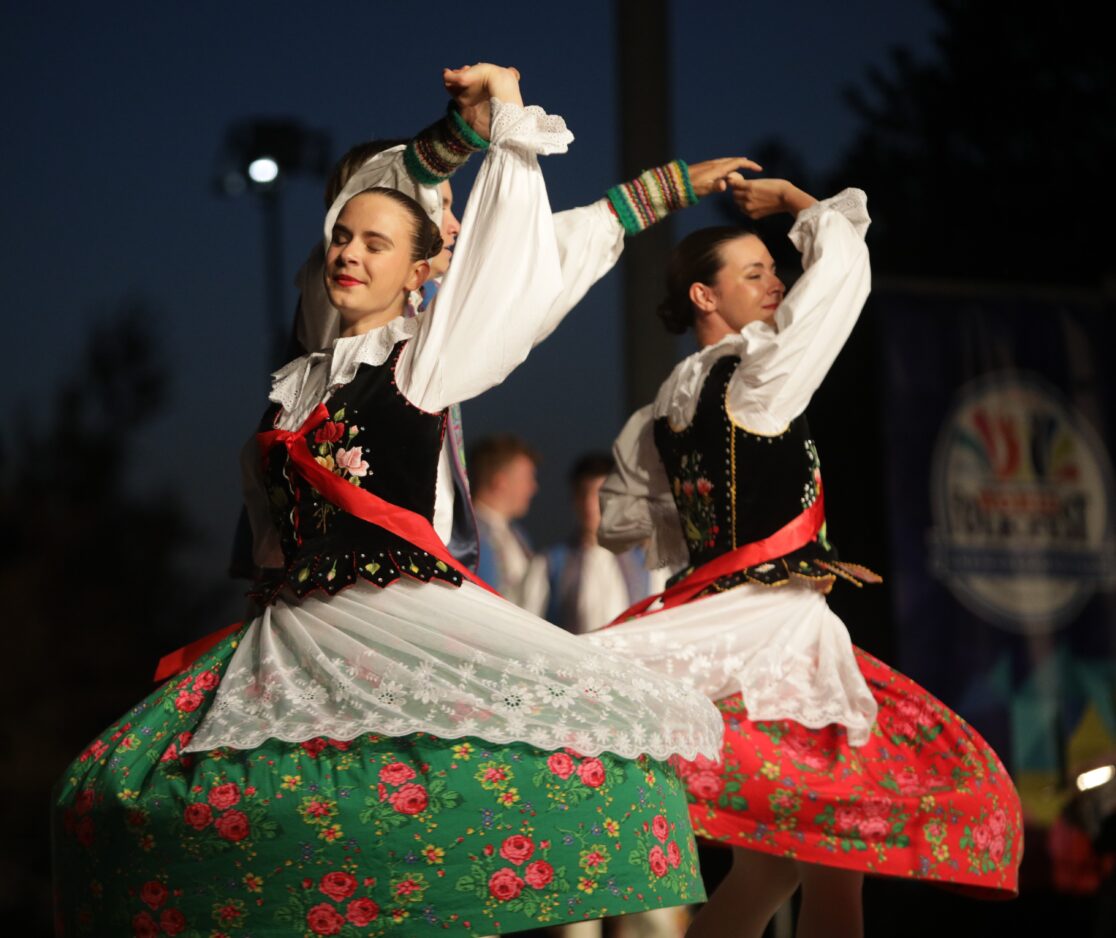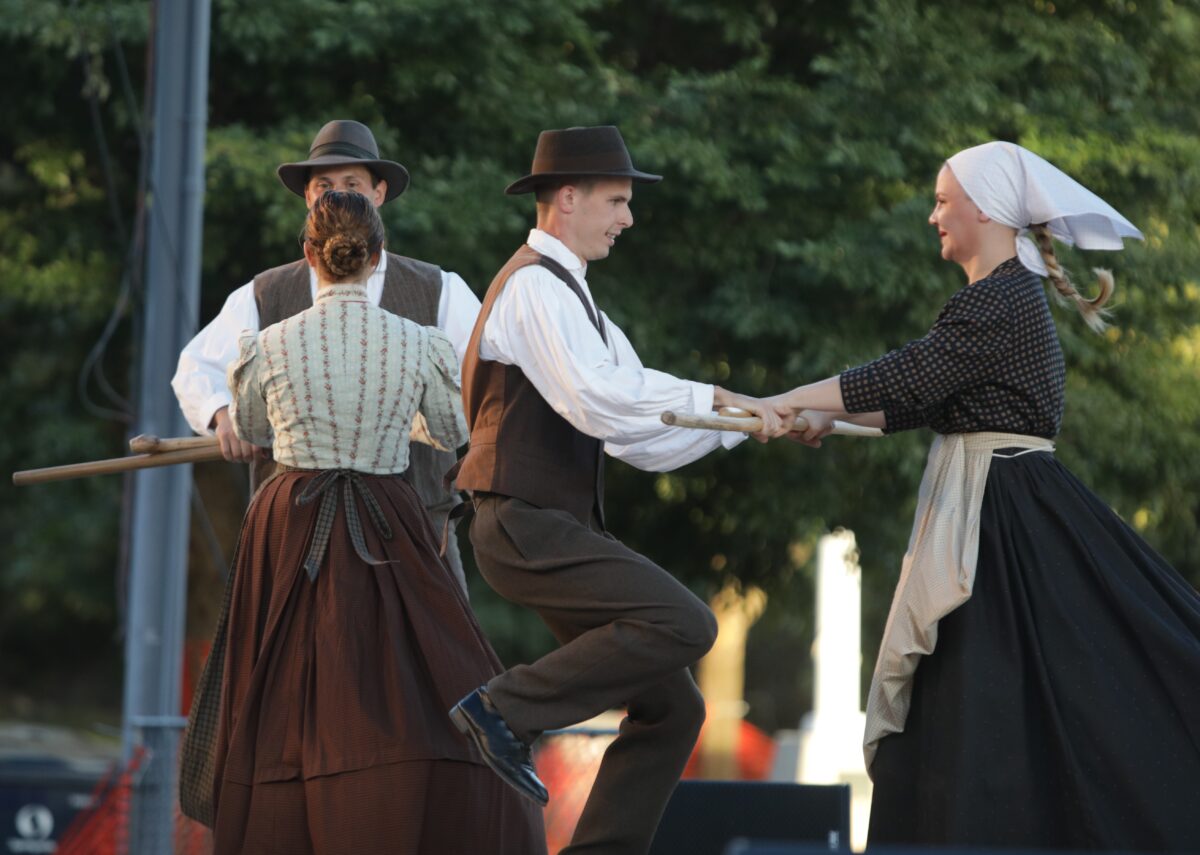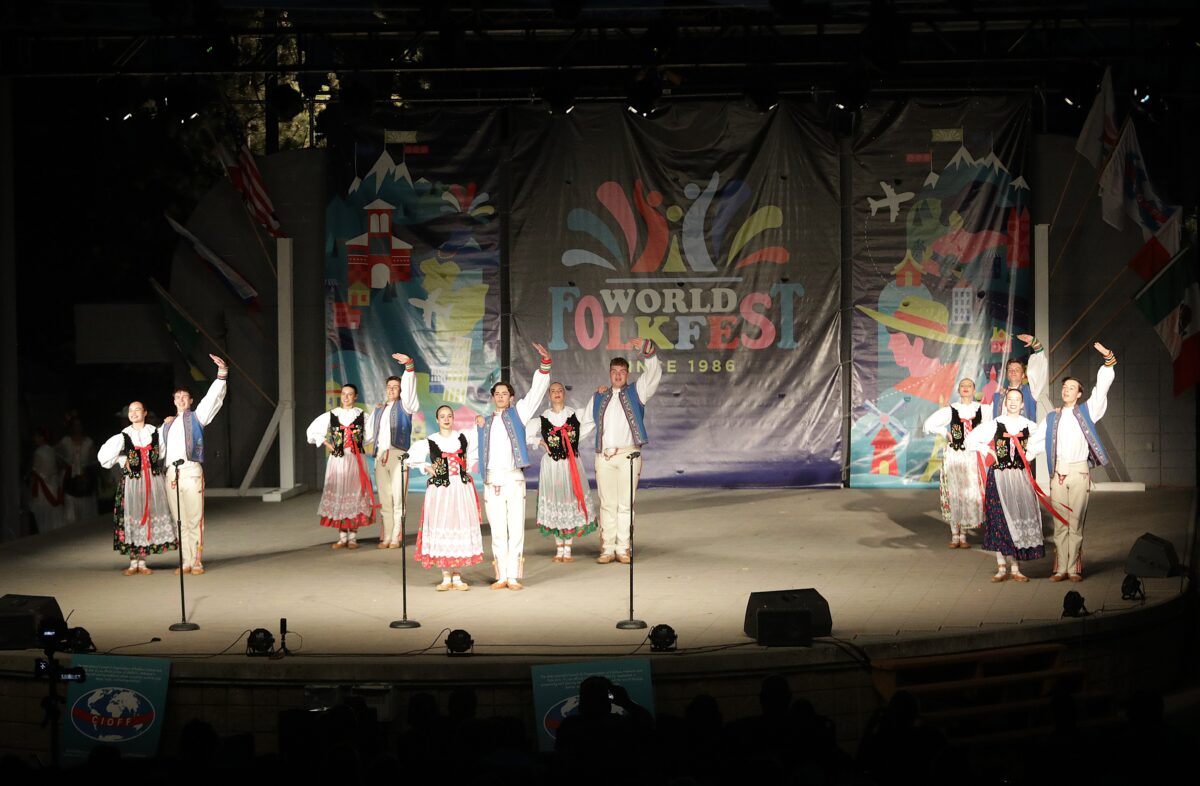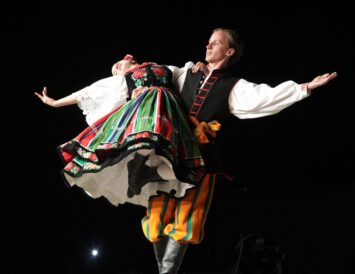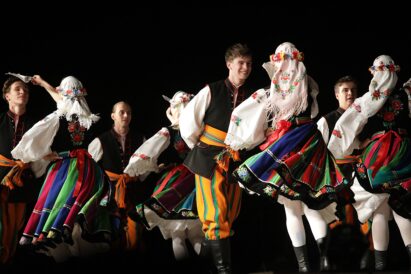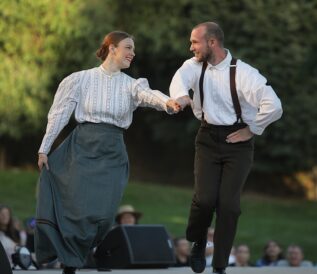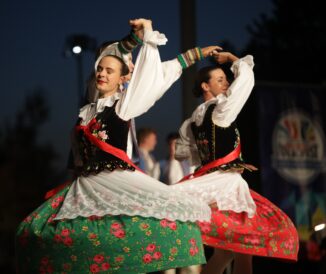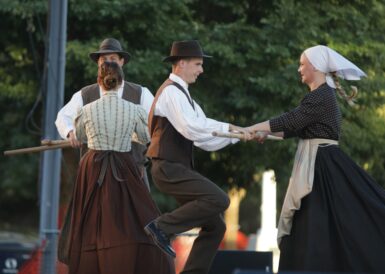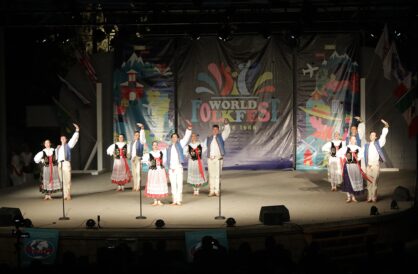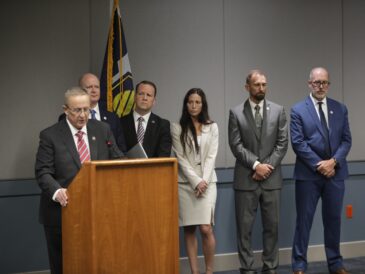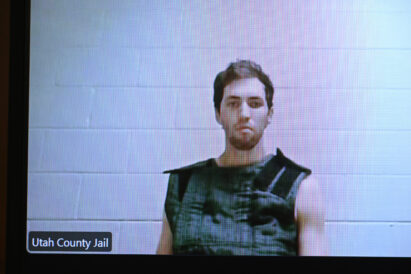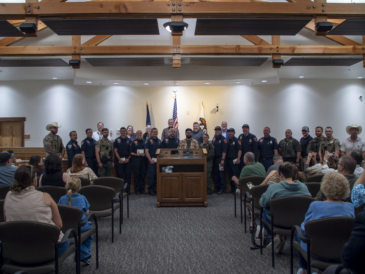A global production: International performers share their traditions at 39th annual Springville World Folkfest
- Polish dancers perform at Springville World Folkfest on Saturday, Aug. 2, 2025.
- Polish dancers perform at Springville World Folkfest on Saturday, Aug. 2, 2025.
- Slovenian dancers perform at Springville World Folkfest on Saturday, Aug. 2, 2025.
- Polish dancers perform at Springville World Folkfest on Saturday, Aug. 2, 2025.
- Slovenian dancers perform at Springville World Folkfest on Saturday, Aug. 2, 2025.
- Polish dancers perform at Springville World Folkfest on Saturday, Aug. 2, 2025.
Folk music and dancing is described by World Folkfest International Director Emily Wilkinson as “the stories that grandparents teach their children.”
Last week, Springville once again served as a destination point for performers from across the globe to share their culture’s most cherished stories at the 39th-annual World FolkFest.
Dancers and musicians representing 10 countries took to the massive stage at Spring Acres Arts Park throughout the weeklong event that concluded Saturday night, including three dance groups that traveled directly from their respective countries of Brazil, Poland and Slovenia.
The trip was an immersive experience for those dancers and musicians who, after first performing in Idaho, went to Utah and stayed with host families and were exposed American delicacies such as ribs and Crumbl.
In exchange, the dancers and musicians put their heart and soul into technically difficult and — in some instances — emotionally heavy folk performances for Utahns to see.
“We hoped to show people how unique Slovenia is in terms of its culture because we have a lot of different influences on a very small territory,” a Slovenian dancer named Lea said Saturday night. “Each of our dances is a bit different and that really shows through our repertoire. That’s what we wanted to show, that it’s many different influences, many different costumes, and I do hope we achieved that.”
Springville’s festival is part of the International Council of Organizations of Folklore Festivals and Folk Arts, or CIOFF, an organization that partners with the United Nations and has festivals throughout the globe.
Wilkinson, who also serves as the United States President of CIOFF, said Springville is one of two international CIOFF Festivals in the country. To perform in the event requires extensive evaluation and planning that takes over a year to complete.
“They’re not just performers, they are ambassadors of their county,” World FolkFest spokesperson Julia DeLeeuw said. “They go through rigorous certifications to prove that their dances are authentic and their costumes are authentic and their music is authentic.”
This year presented additional hurdles due to political and visa worries, which, according to Wilkinson, resulted in nine nations dropping out of the festival.
DeLeeuw added that there was bit of a lull in attendance throughout the week.
Hundreds of people still gathered at the park Saturday night, though. The grassy amphitheater served as a pleasant location for spectators to watch the storied festival from from a lawn chair or blanket.
“It was a difficult year, but it’s more important than ever to have the festival like this now because it bypasses politics and it’s (just) people,” Wilkinson said. “So it’s direct communication and truly it’s just a family that no one gets in the way of. They arrive as strangers and leave as family.”
Each nation that performed Saturday night carried out multiple dances equipped with live music. The Polish team, backed by its own orchestra, performed a first song that saw men tossing each other in the air then spinning around the women in their 30-pound costumes.
The second performance described a love story between a man and woman, and the third story was about people searching for love — whether or not they found it was up to personal interpretation.
“We have our own culture that is really full of different dances, different traditions that are very, very important to us,” a Polish dancer named Milena said. “And we’d like to share them with the whole world as they’re very interesting and we find them really, really amazing.”
DeLeeuw said the goal of the show is to preserve unwritten cultures and promote global citizenry. From Milena’s perspective, the festival and her time in America both checked those boxes — even though she thought the food was too sugary.
“I think it is something that helps us grow as people and we get to share our traditions with the rest of the world, but also we learn something from other countries,” she said. “We learned, for example, how Americans can be so welcoming, so open and interested in how we’re feeling, how we’re doing, what we look like, live like, and it can be really eye-opening.”
Next year marks the festival’s 40th anniversary, and organizers are hoping for more people to come out and appreciate the global unity.
“We really want to keep this tradition going,” DeLeeuw said. “This is a nonprofit event. We’re all run by volunteer board members. We try to keep our ticket prices really, really low so that more people can access the festival. And it’s one of the most affordable festivals in Utah. So we just want more people to know about it because if somebody knows about it, they come out.”

